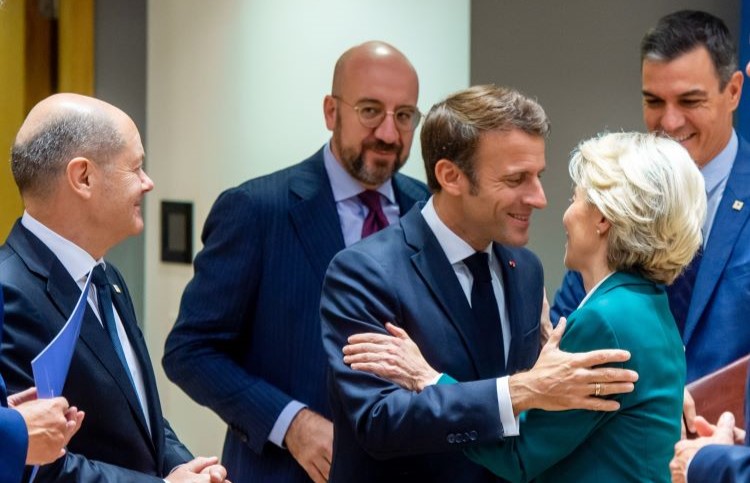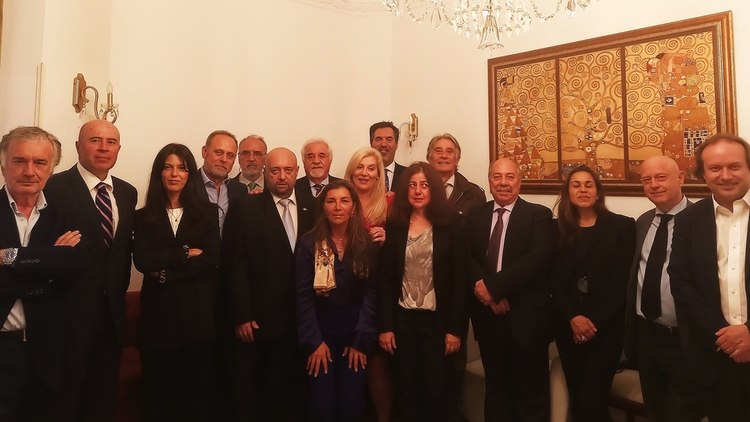Eduardo González
The President of the Government, Pedro Sánchez, yesterday described as “very positive” the results of the European Council on energy, which will allow “working together on measures to extend the Iberian model, or something similar, to the rest of the EU”.
“Spain is playing a leading role in many of the measures agreed by the EU,” Sánchez said at the press conference following the Council, held on Thursday and Friday in Brussels. “In fact, Spain has been making proposals for quite some time which, although initially received with skepticism, now enjoy shared recognition and we congratulate ourselves for this,” he continued.
“Now it is time to work quickly so that these proposals can be adopted soon,” he continued. “We will work together on measures to extend the Iberian model, or something similar, to the rest of the EU, a mechanism that has already saved our consumers 2.9 billion,” he added.
During the meeting, the leaders of the 27 Member States agreed “to ensure security of supply, avoid rationing and lower energy prices for households and businesses across the Union, and that the integrity of the single market must be preserved.”
To this end, the Heads of State and Government asked the Council and the Commission to “urgently come forward with concrete decisions” concerning, among others, “voluntary joint gas purchases”, the search for “a new supplementary reference value for early 2023 that more accurately reflects gas market conditions”, the creation of a “temporary dynamic price range for natural gas transactions to immediately limit excessive price episodes” or the implementation of “a temporary EU framework for capping the price of gas in power generation including a cost-benefit analysis”.
The European Council also reiterated “the need to increase investments in energy efficiency, in future-proof energy infrastructure, including interconnections and storage, and in innovative renewable energy technologies”, and invited the Commission to “accelerate work on the structural reform of the electricity market, including by preparing an impact assessment”, and to “make further progress towards a full Energy Union contributing to the twin objectives of energy sovereignty and climate neutrality in Europe”.
“Ideas that Spain has been defending for months”
According to the Government, some of the main conclusions of this Council, such as the limitation of the price of gas, the development of specific ideas to establish a limit on the price of gas used for electricity generation, the joint purchase of gas or the recommendation to the Commission to accelerate the work for a structural reform of the electricity market, are ideas that “Spain, together with other Member States, has been defending for months”.
Since June 15, Spain and Portugal have been governed by the so-called “Iberian mechanism”, which allows the price of gas used to produce electricity to be capped at 40 euros per megawatt/hour. The application of this mechanism was made possible after the European Council of March 25 approved the right of the two Iberian countries to manage their own reference gas prices for combined cycle power plants, in view of the “energy island” nature of the peninsula due to its very low interconnection with the European energy market.
As far as interconnections are concerned, this week’s European Council was held shortly after Pedro Sánchez, French President Emmanuel Macron and Portuguese Prime Minister António Costa reached an agreement in Brussels on Thursday to abandon the MidCat trans-Pyrenean gas pipeline project and instead create a maritime pipeline between Barcelona and Marseille (BarMar) to connect the Iberian peninsula with the rest of the EU via France.
New military aid to Ukraine
On the other hand, the 27 condemned yesterday “the new escalation of attacks by Russia” and reiterated “the unity and firm determination to continue helping Ukraine in all fields: political, humanitarian, financial or military”. In this regard, the leaders addressed the extension of military support, with the approval of an aid of 500 million euros in the European Peace Fund, and the creation of a Military Assistance Mission to Ukraine.
Likewise, the heads of state and government discussed the food insecurity resulting from Putin’s war and Sánchez defended the “solidarity corridors”, such as the one that allowed 600 tons of grain from Ukraine to arrive by train in Barcelona a few days ago.







